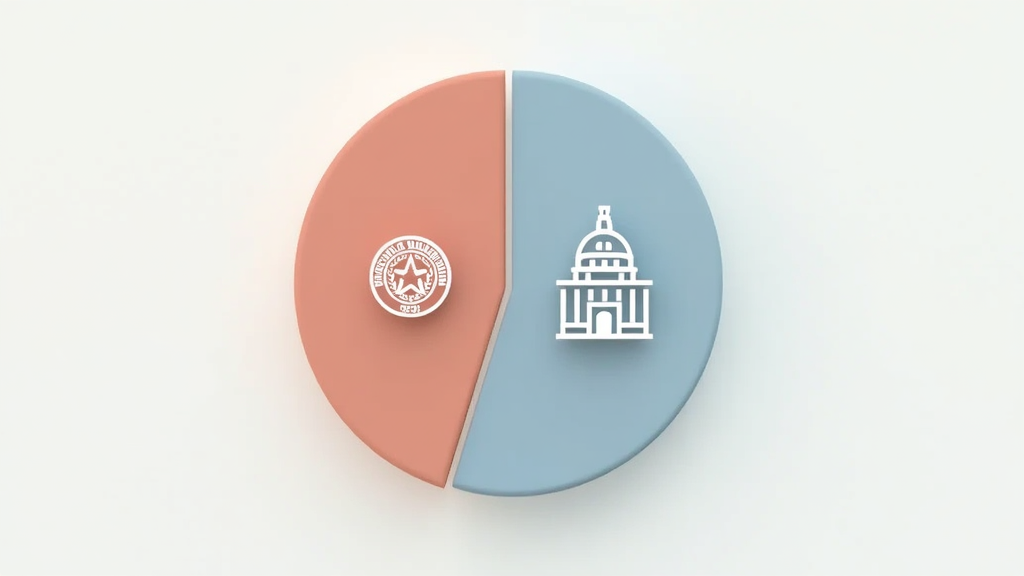Comparing US Army retired benefits with civilian federal retiree benefits can feel complex, especially if you’re thinking about your financial future after years of service. Both systems are designed to provide some peace of mind in retirement, but they are structured differently and offer unique perks and limitations. Drawing from my experience steering through these options, I want to share what I’ve learned to help you make sense of how these benefits work and what you might expect depending on your background.

Overview of US Army Retired Benefits and Civilian Federal Retiree Benefits
Both the US Army and civilian federal government jobs offer retirement plans that provide monthly payments and access to health care after you finish your service or career. However, the exact rules, calculations, and extra benefits can be pretty different.
US Army retirement benefits typically apply after serving at least 20 years on active duty. Civilian federal retirees, by contrast, usually earn benefits under either the Federal Employees Retirement System (FERS) or the older Civil Service Retirement System (CSRS). The details often depend on which side you’re on, how long you’ve worked, and choices you make throughout your career.
Core Elements of the US Army Retirement System
The main parts of Army retirement benefits include a lifetime monthly pension, access to health care programs like TRICARE, and other perks such as access to military exchanges and commissaries. Here’s a closer look at each part:
- Monthly Pension: If I complete at least 20 years of active duty service, I receive a pension for life. The key formula uses my base pay and multiplies it by a fixed percentage per year of service. The longer I serve, the bigger the percentage.
- Health Care: Retired Army personnel and their families get health insurance through TRICARE, which covers most medical needs at a lower cost than many other plans.
- Other Perks: These can include access to onbase shopping, discounted recreation, survivor benefits, and eligibility for veteran support services.
Some Army retirees may also qualify for additional pay if they have service connected disabilities.
Core Elements of Civilian Federal Retirement Benefits
The civilian system offers monthly payments through either FERS or CSRS, along with health and life insurance options. Let’s check out how it comes together for most federal workers:
- Monthly Annuity: If I retire with enough service (typically at least 5 years for FERS), I receive an annuity. Under FERS, the formula looks at salary and years of creditable service, but the multiplier is usually lower than the Army’s.
- Thrift Savings Plan (TSP): This works like a 401k. I can choose how much to contribute, and the government matches up to 5%, which really adds up over decades.
- Health Insurance: If I’ve enrolled in the Federal Employees Health Benefits (FEHB) program for at least five years before retiring, I can keep that coverage, potentially for life, though I will pay my share of the premium.
- Other Benefits: Federal retirees may get access to life insurance, dental and vision coverage, and in some cases, survivor benefits for spouses or dependents.
Both FERS and CSRS have their own unique calculation methods, and which one applies depends on when I started my federal service.
Comparing Retirement Pay: Pension vs. Annuity
A big difference between US Army and civilian federal retirement comes down to how the pension or annuity is calculated and when it can start.
For Army retirees, the pension is usually based on the “high3” years of basic pay and grows with years served. Usually, this is 2.5% of base pay per year, so 20 years at 2.5% equals 50% of base pay. There is no required minimum age, just the years of service requirement. This means military retirees can collect a pension much earlier than most civilians.
Federal civilian annuities under FERS typically offer 1% of the “high3” average salary per year worked (1.1% if retiring after age 62 with at least 20 years’ service). So, 30 years at 1% equals 30% of high3 salary. Most federal civilians can’t start their full pension until at least age 60 (or age 57 in certain scenarios with enough service).
This creates a scenario where I could potentially retire from the Army in my 40s and still have time to build a second career. Sometimes, people end up earning a second federal pension after their military service.
Health Care Benefits: TRICARE vs. FEHB
Healthcare is really important when thinking about retirement. Army retirees and their families can use TRICARE, which has historically lower costs and broad coverage. After age 65, TRICARE For Life steps in as a wraparound for Medicare.
Federal civilians who retire with at least five years’ participation in FEHB can continue the same plans into retirement. FEHB plans cover a wide variety, similar to what many privatesector employees get, but usually at a better group rate. However, the retiree pays a portion of the premiums, which can be more than what retirees pay for TRICARE.
If I qualify for both systems by holding both careers, I can generally choose which health plan works better for my situation, especially if family needs change in retirement. This adds valuable flexibility as healthcare costs or requirements evolve over time.
Additional Perks and Unique Advantages
Army retirees have some oneofakind benefits, like access to military commissaries and exchanges, base facilities, and access to veteran’s services like the VA. These aren’t available to civilian retirees. In contrast, federal civilian retirees usually maintain access to good group health and life insurance and have the Thrift Savings Plan for building extra retirement income.
- Commissary/Exchange: These facilities often offer lowercost groceries and goods, saving me money each month.
- Travel and Recreation: Some military bases offer discounted or free recreational activities for retirees and their families.
- Veterans’ Services: Access to VA services, transition support, and sometimes funding for continued education.
Civilian federal retirees cannot use military bases in the same way, but they may have access to employee associations, retiree social clubs, and other support programs. Some agencies also offer retiree communication networks or resources designed to provide a sense of community long after they’ve left the workforce. These extras can add a lot of personal value to your retirement.
Things to Consider Before Retirement
Making sense of which system works better really depends on your career path, retirement goals, and family needs. Here are a few factors I’ve seen make a difference:
- Timing: Army retirement can happen much earlier, often in my 40s, while federal civilian retirement usually means waiting until my late 50s or 60s for full benefits.
- Pension Value: Military pensions are often higher as a percentage of salary if I qualify, but federal civilians with long service can still do very well, especially if combining the annuity with savings in the TSP.
- Transition Opportunities: Some Army retirees go on to civilian federal jobs, layering pensions and benefits. Careful planning makes the most of this option.
- Healthcare Costs: Outofpocket costs for military retirees tend to be lower, but both systems have good reputations for quality coverage.
Considering survivor benefits, cost of living adjustments, and disability income rights can make a real difference in planning, too. Checking in with a retirement counselor familiar with both systems can help you sort through detailed questions and scenarios.
Another thing to keep in mind is tax treatment. For example, military retirement pay is taxed at the federal level, but some states exempt it, while federal civilian pensions may be treated differently depending on state laws. Figuring out your likely takehome can make a big impact on planning. Look for resources about your state’s tax treatment or ask a tax advisor before making big retirement moves.
Challenges and Common Questions
There are a few sticking points I often hear from folks in both systems:
- Can I get both benefits? Yes, if you retire from the Army and later work as a federal civilian, you can sometimes collect pensions from each system. There are rules around double dipping, but many people do just that.
- Which health plan is better? For me, the answer depends on family size, needs, and prescription coverage. TRICARE is typically less expensive, but FEHB covers a broader range of services and locations.
- What happens with unused sick leave for civilians? In the federal system, unused sick leave can count as extra time toward your service calculation, which increases your annuity. The Army system does not offer this.
Why It’s Helpful to Compare and Ask Questions
I found it really helpful to compare scenarios using online retirement calculators. The Office of Personnel Management (OPM) and the Department of Defense both offer online tools for calculating retirement pay. Plugging in your own dates, pay records, and years of service can show you exactly what to expect.
It’s also smart to reach out to human resources or a retirement counselor with experience in both military and civilian systems. These professionals can break it down for your unique combination of service, helping you avoid common mistakes and lock in the best options for your family. Reading up on forums and talking to those who have retired before you can help you track down tips you might not find in official documents.
Frequently Asked Questions
Question: Can I transfer my military service to count toward civilian federal retirement?
Answer: If I leave the Army before qualifying for retirement and join the federal civil service, I can often “buy back” those years to count toward my FERS retirement. This means paying a percentage of my base pay from those years to the system.
Question: Are costofliving adjustments (COLAs) applied the same way for both systems?
Answer: Military retirees usually get COLAs tied to inflation every year. Under FERS, I get a similar adjustment, but sometimes the increase trails behind the official inflation rate, especially if inflation is high.
Question: Can survivors or spouses keep health coverage if I die?
Answer: Both the Army and federal systems offer survivor annuities and continued health coverage, but I need to sign up for these benefits and possibly pay extra premiums for them to continue for my loved ones.
Deciding if Army retired benefits and civilian federal retiree benefits comes down to understanding my own priorities, timelines, and what matters most for my family. Whether I served in uniform or spent decades at a desk, both systems aim to reward long service with stable, predictable retirement income and health care. By checking eligibility for each program, reading up on current policies, and talking with knowledgeable counselors, I can set myself and my family up for a smoother retirement adventure.
